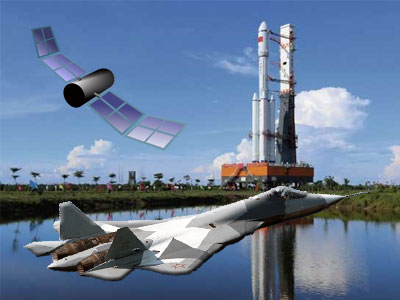When it is called space technologies, it is understood that technologies that serve many purposes such as communication, defense, astronomy and air traffic include the design of the vehicles sent to the space, sending them to the orbit and transferring the useful information to the earth. Within this scope, rockets, space shuttles, artificial satellites, various vehicles downloaded to the planets and catheter devices are included in the space technologies.
AS9100 = ISO 9001 + has additional IAQG requirements, AS9100 certification includes certification according to the popular ISO 9001 standard. Because the text is included in the AS9100 Standard, a copy of the ISO 9001 standard is not required.
Some useful tools to learn about AS9100 Certification:
- AS9100 Quick Start Kit
- AS9100D Certification Stages
- AS9100 Rev D (2016) Requirements
- Learn about all Aviation Standards specified in AS9100.
Some things to understand about AS9100:
There are three mutually exclusive ASD Standards:
- AS9100 - Design, Development or Manufacturing
- AS9110 - Aircraft Maintenance Organizations
- AS9120 - ASD Distributors of electronic and hardware components
AS9100 mentions other standards of guidance you need to understand. These additional standards do not require certification.
Whatever the size of your organization: 1 people or 1 million people
It is not a product standard that defines product quality. AS9100 asks you to check your processes so that your end product meets customer requirements.
This is not a personal standard - a person cannot obtain an AS9100 certificate. You can participate in the AS9100 Certified Lead Auditor course and then 3. apply to become a party auditor.
The registrant issues an AS9100 Certificate, which indicates that your organization is registered to AS9001 (and ISO 9100) for a period of three years. (Eg TÜRCERT which can issue a certificate)
The benefits of AS9100 include market acceptance and are approved by all major aviation regulators at AS 9100 including:
- Federal Aviation Administration (FAA)
- US Department of Defense (DoD)
- National Aeronautics and Space Administration (NASA).
TUBITAK's technologies for the use of space and space are listed as follows: spacecraft building technologies, spacecraft control and control technologies, spacecraft launch and ground control technologies, spacecraft propulsion technologies, satellite production technologies, satellite communication technologies, location and orientation technologies , satellite sensing and observation technologies, life and production technologies in space, space air technologies, space medicine technologies in space and earth, and space management and information system technologies.
In addition, aviation technologies include the design and manufacture of flyable vehicles and the production of technologies for flying vehicles. For example, passenger aircraft, combat aircraft, ammunition carrying aircraft, unmanned aerial vehicles, air support vehicles and helicopters. On the other hand, space and aviation technologies, information technologies, electronic and communication technologies, land, sea, submarine and air platform technologies, strategic material technologies, propulsion, power and energy technologies, non-traditional system, production technologies and nanotechnology, biotechnology, biomedical and It is also closely related to many technologies and sciences such as health technology and air traffic systems technology.
Today, it is used in numerous fields from space and aviation technologies, transportation and defense systems to communication, even to energy, agriculture and astronomy studies. Especially with the beginning of 2000 years, space studies have accelerated and turned into a competition in the world. Studies in this area aim to investigate manned space flights and detailed planets on other planets in 2050.
In our country, studies are carried out on space and aviation technologies, but in general, this sector is dependent on foreign countries. With the beginning of 2000 years, TUBITAK initiatives started to make investments in this field in our country.
Space and aerospace technologies are developing in this way in the world and in our country, on the other hand, a number of activities have been started to ensure that the activities in this direction have reached a certain systematic. The first standard work in this direction is AS 9100 Aerospace Industry Quality standard developed by International Quality Group Aerospace Industry.
The aviation sector is an important sector that has been shown with respect to security today. There are high quality expectations in every area of this sector that constantly attracts the attention of the public and the probability of error should be zero. However, an independent certification system was needed to ensure this commitment. This document not only provides security quality but also creates new business opportunities for businesses.
The AS 9100 standard is a Quality Management System standard and is fully built on the ISO 9001 Quality Management System. However, it includes definitions, criteria and additions specific to space, aviation and defense sectors. In our country, this standard series has been published by the Turkish Standards Institute with the following headings:
- TS EN 9100 Aerospace series - Quality management systems - Terms (according to ISO 9001: 2000) and quality systems - A model for design, development, production, installation and service quality
- TS EN 9110 Quality Management Systems - Requirements for aviation maintenance organizations
- TS EN 9120 Quality management systems - Requirements for aerospace and defense distributors



